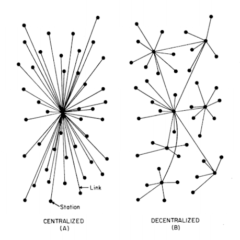Eduardo Vivieros de Castro, 2014
Eduardo Vivieros de Castro, a renowned Brasilian anthropologist, argues that outside of the Western canonical approach tribal myth can be considered philosophy. In a work saturated with difficult language laid beautifully together, he tackles Deleuze and Guattari’s oeuvre in order to both formulate his approach and advance a metaphysical critique. His methodology is underpinned by psychoanalysis but draws heavily on classical anthropological theory from Levi-Strauss, deploying myths to illustrate his points about truth, function, and metaphilosophy. At the core of Vivieros de Castro’s work is the Yanomani’s understanding of the jaguar. He asserts that there is a genuine equivalence between humans and animals in their ontology. The jaguar has relation to blood in the same way humans do to beer, but this is not a structural interpretation: it is rather, what he terms a perspectivist one. The book is rich with theory, much of it veering far away from what anthropologists have traditionally considered (in its basally psychoanalytic enagagement), but familiar names like Mauss and Malinowski crop up and there is also a discussion of the general economy of Bataille, which drew from anthropological reasoning.
Given the brevity I think this book, or at least its first chapter, is worth reading. Certainly the concepts it deploys are interesting. But few will be able to interpret the innumerable twists and turns of Vivieros de Castro’s arguments without an intimate knowledge of Deleuze and Guattari. Having been acquainted with their major works I was still, very often and in particular in the last half of the book, far too lost to recount what was going on.

Great article! This is the kind of information that are meant to be shared across the web.
Disgrace on the seek engines for not positioning this put up higher!
Come on over and consult with my website . Thank you =)